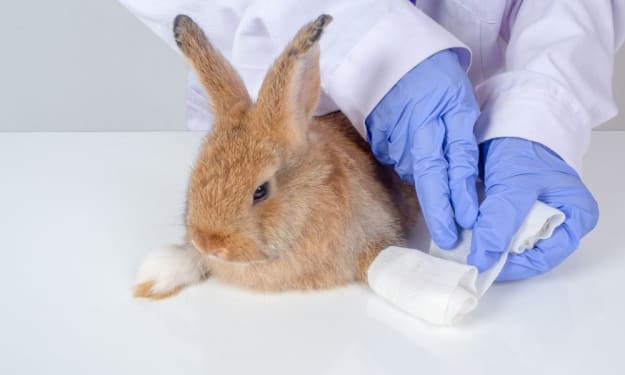25 Dog Care Tips For Pet Parents
Here are some dog care ideas to support you in your effort to be a great pet parent

You may cherish your dog as if it were a part of your family if you own a dog. And just like with your children, you want to make sure you provide your dog the greatest care so they may live long and healthy lives.
Here are some dog care suggestions to support you in your efforts to be a great pet parent.
Your Dog's Basic Needs Should Be Met
It's crucial for dog owners to comprehend and cater to their dogs' basic requirements. Whether you're an experienced pet parent or a rookie, you must prepare the environment for your new puppy. The essential requirements for your dog are wholesome food, water, treats, toys, and bedding to help the puppy feel at home.
The best course of action is to visit the vet as soon as you welcome a new dog into your house. Your veterinarian may advise you on the proper food to give your new buddy, how much to provide, and other vital information.
Track your food intake
According to the most recent statistics from Banfield Pet Hospital, which operates more than 1,000 veterinary facilities throughout 42 states, more than one-third (34%) of dogs have been identified as fat. The growth from 2011 to 2020 is 108%.
Unfortunately, overweight dogs are more likely to have health problems like inadequate immune systems, metabolic abnormalities, and cardiovascular disease. Even though you might want to reward your pet, refrain from feeding them treats.

Ensure you have access to enough water all day
All canines must have access to fresh, clean water throughout the day. To prevent bacteria from growing on food and water dishes, be sure to refill the water supply and wash all of them.
Regular dog grooming
Grooming your pet frequently keeps them clean and pest-free. Some dogs only require a wash every few months, whilst others require routine maintenance. If your dog sheds, you should brush it frequently.
Also necessary is nail cutting. Failure to cut your dog's nails might result in health issues including torn tendons and malformed feet.
Keep Your Dog Healthy with Regular Care
It is possible to provide your pet the greatest and healthiest life by actively taking care of its well-being and medical needs. If you have pet insurance, adding a wellness package to your plan will typically help to defray the expense of routine treatment.
For instance, a Forbes Advisor review of veterinary prices found that the typical cost of a visit to the doctor's office is around $61, while the typical cost of a series of vaccines (including those for rabies, leptospirosis, Lyme disease, bordetella, and bivalent influenza) is about $202.
Set up yearly examinations with your veterinarian.
Regular vet visits allow the doctor to check your dog for any health issues, which is one of the greatest methods to maintain your pet's health.
Look for heartworm, flea, and tick prevention options.
The health of you and your pet is at danger because fleas and ticks may spread illnesses including Lyme disease, plague, and Rocky Mountain spotted fever. Your dog's lungs, heart, and arteries might be harmed by heartworms. Discuss preventive measures, including as topical and oral drugs, with your veterinarian.

Maintain appropriate immunizations
The body of your dog is shielded against contagious illnesses by vaccinations. Parvovirus, distemper, rabies, and canine hepatitis are typically included in standard canine immunizations. You could also require a vaccination against Bordetella bronchiseptica, which can cause kennel cough, if you groom or board your dog. Your veterinarian can advise you on the vaccinations that are right for your dog.
Consider having your pet neutered or spayed.
Pet population control isn't the only reason to spay and neuter animals; it can also shield your dog from certain illnesses. For instance, spaying your female dog can reduce her risk of breast cancers and uterine infections. Male dogs who are neutered are less likely to get prostate and testicular cancer.
Teeth cleaning for your dog
Dental care is crucial for preserving your pet's health despite being frequently disregarded. Brushing your dog's teeth on a regular basis will help avoid dental conditions that may ultimately impact your dog's kidney and liver function.
It may also be advised to get your teeth cleaned, which can cost anywhere from a few hundred to a thousand dollars, depending on where you live. There are add-ons offered by certain pet insurance providers, such Lemonade pet insurance, to assist cover the expense of dental treatment, including regular cleanings.
Activate the Body and Mind of Your Dog
Your dog's health is greatly influenced by a mix of mental and physical stimulation. Additionally, it may deter negative habits that could ruin your patience and your house while encouraging positive conduct.
As the saying goes: A tired dog is a good dog.
Everyday exercise for your dog
Healthier bones, joints, muscles, and organs are promoted by regular exercise. Additionally, walking helps reduce monotony and stimulate the mind. Incorporate your pet into your workout regimen by having them run around the backyard, trek, or climb stairs. While different breeds and sizes of dogs require differing amounts of exercise, setting up a schedule for both of you to go for walks is crucial.
Protect your pet
Your home has dangers both inside and outdoors that might hurt your dog. The following advice will help you keep your dog secure and out of trouble.
Register your dog
Dog owners are frequently required to register their dogs under state and local pet regulations. To be sure your dog has the appropriate license, check with your neighborhood governments. To show that your dog is registered in the event that it goes lost, you should fasten the license to its collar.
Consider a microchip
A microchip can help you find your dog if it gets missing. Microchips may be implanted painlessly and save your contact information. In most cases, veterinarian clinics and animal shelters can scan them.
The cost of microchipping is covered by certain pet insurance policies.
Secure trash, chemicals and toxins around your home
Although dogs are naturally curious creatures, their curiosity can occasionally put them at danger of harm or sickness, especially when they are exploring your house.
Secure your garbage, poisons, and other substances you find about the house to keep your dog safe.
To improve your relationship, train your dog and form a close connection.
Training your dog and forming a bond go hand in hand. Building a relationship based on mutual respect, open communication, and companionship requires doing both.
Make time spent alone with your dog a priority.
Dogs thrive when their owners show them love and attention. Making time for everyday pet encounters helps to improve your relationship. You may accomplish this by stroking, entertaining, and rewarding your dog with treats.
Exercise constancy and patience.
It takes a lot of persistence and patience to train a dog. Dogs are sensitive to bad energy, so if they detect your agitation or anger, they might not work as well.
Ask your veterinarian for advice or speak with a professional if you're having trouble training your dog. Keep in mind that training your dog will take some time; the rewards.
Think about training with positive reinforcement.
Positive reinforcement training involves rewarding your pet for appropriate behavior while disregarding inappropriate conduct. This form of training boosts your dog's self-assurance, promotes collaboration, and fosters tolerance. Additionally, it can strengthen your relationship with your dog.
Keep a watchful eye on your dog's paws.
During the winter, ice and salt can cause cracks in your pet's foot pads. Hot asphalt or concrete can burn you and hurt you throughout the summer. To protect your dog's paws, think about using booties or try walking in the grass.
Plan Ahead with Pet Insurance to Cover Unexpected Vet Costs
Even with the finest preparation and precautions, accidents and diseases can still occur without warning, costing you a lot of money in vet expenses. For instance, your dog might suffer a major illness like cancer or damage its cruciate ligament while chasing a ball.
Getting pet insurance is a fantastic approach to assist cover medical expenses. And the cost can be lower than you imagine.
According to a Forbes Advisor survey of pet insurance premiums, the average monthly cost of pet insurance for a dog is $35. This offers a $250 deductible, $5,000 in yearly coverage, and a 90% reimbursement rate.
Here is a situation to think about if you're unsure if pet insurance is worthwhile:
Your dog need surgery after tearing its ACL. There are $4,000 in vet costs. Your out-of-pocket expenses would be $375 if you had pet insurance with a $250 deductible and a 90% reimbursement level ($250 deductible + 10% of $3,750 = $375).
By comparing pet insurance rates online or by chatting with a free insurance agent, you may discover a fair deal.
About the Creator
Enjoyed the story? Support the Creator.
Subscribe for free to receive all their stories in your feed. You could also pledge your support or give them a one-off tip, letting them know you appreciate their work.





Comments
There are no comments for this story
Be the first to respond and start the conversation.